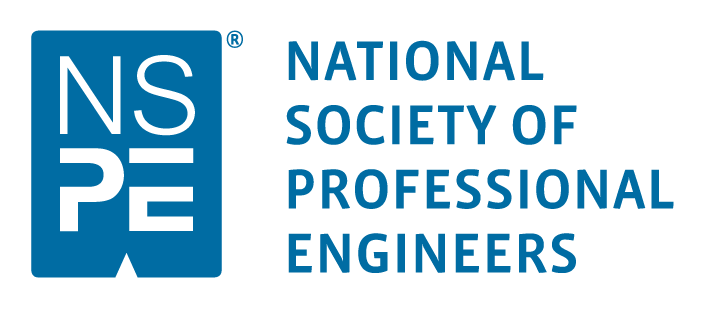Keeping Our Waters Clean: SPCC Compliance for New Jersey Facilities
New Jersey’s waterways are critical resources for transportation, energy generation, and water supply. However, the heavy shipping traffic and petroleum terminals along these waters make them especially prone to pollution and oil spills.
According to the National Oceanic and Atmospheric Administration (NOAA), the US suffers over 150 oil and chemical spills every year. In New Jersey, most oil spills occur in three key areas: northeastern NJ (Arthur Kill, Passaic River, Raritan River and Bay), southeastern NJ (Delaware River and Bay), and the waters connecting these regions. When oil spills happen, they do not just pollute the water; they destroy habitats, endanger marine life, and threaten the health and livelihoods of surrounding communities.
These consequences are precisely what the Environmental Protection Agency (EPA) aims to prevent with the SPCC rule. The EPA, in coordination with the New Jersey Department of Environmental Protection (NJDEP), seeks to establish preventive measures and response plans to minimize spill risks in NJ facilities handling hazardous materials.
What is the SPCC Rule?
Spill Prevention, Control, and Countermeasure (SPCC) is a directive established under the Clean Water Act. Its goal is to prevent oil spills and water contamination by enforcing procedures and equipment requirements on facilities that store or use significant amounts of oil products.
Under the SPCC rule, covered entities must prepare and implement an SPCC plan. The SPCC plan details the facility’s preventive measures, spill response procedures, and containment systems to manage and mitigate potential oil spills.
SPCC plans should follow the Federal Code of Regulations 40 CFR, 112. Generally, it should disclose the following details:
- Facility Description and Operations:A detailed overview of the site, including its storage tanks and potential spill sources.
- Spill Prevention Measures:Facilities should eliminate the risk of spills before they happen. This is possible through secondary containment systems (e.g., spill barriers or containment walls), leak detection systems, and routine inspections.
- Control Measures: A system must also be put in place to limit the spread of spills in case the prevention measure fails. Examples include dikes, berms, and sump pumps.
- Emergency Response Protocols:The facility should specify a step-by-step procedure for quick containment and cleanups as well as the timeline for executing this response.
- Training Programs:Operators and staff play a big role in minimizing spill risks. They must be knowledgeable about the prevention methods and be able to act swiftly and correctly in the event of a spill.
Facilities Covered by the SPCC Rule
SPCC rule applies to any industrial factories, commercial facilities, warehouses, healthcare facilities, agricultural facilities, or government properties that:
- Store, use, or transfer oil products, including petroleum, fuel oil, sludge, synthetic oils, mineral oils, animal fats, vegetable oils, and other non-petroleum oils.
- Stock 42,000 gallons or more in underground containers and more than 1,320 gallons of oil in aboveground containers.
- May reasonably discharge oil into navigable waters or shorelines.
SPCC requirements are divided into three tiers. Each category has its own specific set of guidelines, and a facility determines its tier based on its oil storage capacity.
- Qualified Tier I Facility –those with maximum aboveground oil storage of 10,000 gallons, with no single container exceeding 5,000 gallons. Their operation must also have no record of spills in the past three years.
Qualified Tier I facilities can certify their own SPCC templated plan or have a Professional Engineer (PE) do it.
- Qualified Tier II Facility –factories or warehouses with a maximum aggregate aboveground oil storage capacity of 10,000 gallons. A facility also falls under this category if it had no spills in the past three years if at least one of its containers exceeds 5,000 gallons.
Warehouses in this category are required to have a full SPCC plan, which may be self-certified or professionally completed.
- Tier II (Professional Engineer Certified) –facilities with an aggregate aboveground oil storage capacity exceeding 10,000 gallons or those with a history of spills. This plan requires certification by a qualified licensed Professional Engineer.
Requirements After Implementing the SPCC Plan and the Role of Professional Engineers
Once an SPCC plan is created and implemented, it must be reviewed and updated by a licensed Professional Engineer (PE) at least every five years. Inspections are necessary to verify that facilities continue to meet the rule’s key requirements.
The SPCC rule does not specify a methodology, but it provides that inspections and testing should be conducted in accordance with industry standards and good engineering practices. Hiring a PE is recommended, as they have a comprehensive understanding of relevant inspection standards and have the skills and experience to apply them according to the demands of the case.
For example, a PE can recommend and facilitate a certified contractor to complete the required testing procedures defined by the Steel Tank Institute (STI) or American Petroleum Institute (API). A PE’s expertise allows for the proper application of these standards, so gathered data is reliable and represents the true picture of the facility’s capacity to prevent oil spills. This enables the recommendation of appropriate actions for identified deficiencies or risks.
A professional structural engineer New Jersey can also provide expert guidance on improvements, equipment upgrades, and system enhancements. Working with qualified experts helps maintain compliance with regulations while reducing environmental risks and long-term spill-related costs.
Partner With Lockatong Engineering for SPCC Compliance in New Jersey
Newark Bay and New Jersey’s many streams, rivers, and groundwater resources face constant threats from oil spills. As stewards of these vital resources, facilities have a responsibility to prevent spills and keep the state’s waters clean. Thus, attaining SPCC compliance is not merely a legal obligation; it is also a commitment to environmental sustainability.
For a state as industrialized and densely populated as New Jersey, SPCC compliance is critical to balance development and environmental stewardship. By safeguarding New Jersey’s waterways, businesses become active participants in the preservation of the state’s local ecosystem.
Work with experienced professional engineers in New Jersey to achieve SPCC and NJDEP compliance. Lockatong Engineering helps NJ facilities achieve environmental compliance through the following services:
- SPCC plan development
- Onsite inspections
- Policy reviews
- Recommendation of tailored solutions
- Onsite training of facility staff to review the SPCC requirements and procedures
With our expertise, you can confidently address potential vulnerabilities in your systems and maintain that your facility meets EPA and NJDEP regulations.
Contact Lockatong Engineering today for a consultation.








